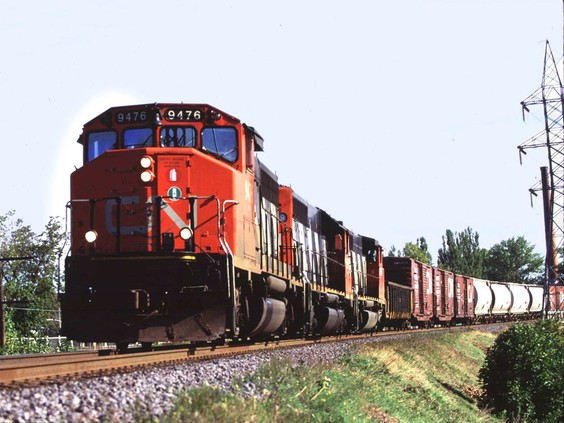Michael Joel-Hansen
Saskatoon StarPhoenix
Businesses are warning of dire consequences as the possibility of Canada’s major railways shutting down operations draws closer, but at least one analyst thinks the federal government will step in.
Both Canadian National Railway Co. and Canadian Pacific Kansas City Ltd. have served notice to their workers that they will be locked out if a new collective bargaining agreement is not reached by Thursday. Meanwhile, the Teamsters Canada Rail Conference (TCRC), the union representing frontline workers at both companies, has served 72-hour strike notices to both railways.
The dispute is threatening to stop operations at both of the railways for the first time ever. The main point of contention between the two sides involves proposed changes to scheduling. The TCRC said the proposed changes would compromise safety, while the railways say the changes are in line with current federal regulations regarding rest periods.
The potential disruption in rail service would especially have an impact on the Prairie provinces, where farmers have begun harvesting this year’s crop. Last week, Saskatchewan’s Minister of Highways, Lori Carr, wrote to the federal government to urge it to do everything in its power to avoid a service disruption.
“These measures could include back-to-work legislation or a directive of binding arbitration,” she said.
CIBC Capital Markets analyst Kevin Chiang expects any disruption in service to be brief or for the federal government to intervene in some way. He pointed to the government getting involved in the dispute between WestJet Airlines Ltd. and its mechanics, which impacted flight service on the Canada Day long weekend.
“Seeing as how the federal government was willing to step in and attempt to prevent a disruption to Canadian travel plans, we imagine its tolerance for an extended disruption to Canada’s supply chain is low,” he said in a note to clients.
Joining the Government of Saskatchewan in its calls for a disruption to be avoided is the Agricultural Producers Association of Saskatchewan, which said a shutdown would be costly for farmers since they ship 94 per cent of their crops by rail. It also said a disruption could be costly in the long term.
“The ability of Saskatchewan farmers to market their grain is also vital to the Canadian economy and to maintaining our nation’s reputation as a reliable trading partner,” the association said in a statement.
National business organizations have also called for both sides to come to a resolution. The Canadian Federation of Independent Business (CFIB), which represents small and mid-sized businesses, said many of its members rely on rail services to operate their businesses. It said there could also be other impacts as well.
“These shutdowns will also disrupt public transit and commuting to big cities such as Toronto or Montreal and lead to increased business costs and supply chain disruptions,” it said in a statement.
The CFIB is calling on the federal government to pass legislation to classify railways and ports as essential services, which would prohibit workers from striking or employers from locking workers out in the event of a dispute.


